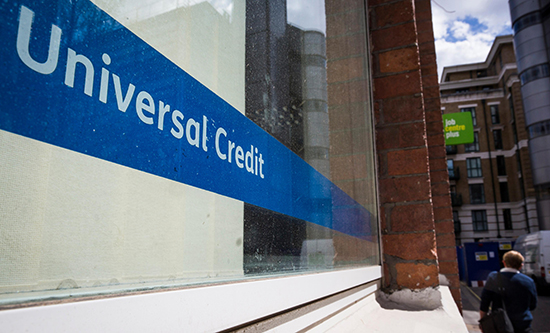
After a series of long delays, the Department for Work and Pensions (DWP) is preparing to introduce the next phase in its roll out of Universal Credit (UC): managed migration. The scheme, which is being piloted in Harrogate ahead of the national launch in July 2020, will force millions of claimants to terminate their existing benefits and apply for UC. The change is predicted to cost 3.2 million families an average of £59 a week, with 600,000 losing their entitlement to bene ts altogether. As the attacks on the working class mount up, an increasing number are being driven to take drastic action to afford to survive. Benjamin White reports.
School holiday costs force families into debt
The exorbitant cost of childcare and food is expected to cause masses of struggling parents to fall into debt this summer holiday. Families on UC must pay childcare fees upfront, and then wait several weeks to be refunded as part of their benefits. More than three quarters of low- income parents are unable to rely on savings and find themselves having to make the catch-22 decision between taking time off work or spending large amounts of money on childcare.
During the summer break, parents with pre-school-aged children lose their weekly entitlement to 30 hours free childcare. Although the DWP offers the option of extending their allowance into holiday, this can only be claimed by reducing the amount used in term time. This measure leaves some families eligible for fewer than five hours per day. Research from Save The Children has shown that parents would still have to shell out up to £833 to pay for childcare over the six-week holiday.
With parents, especially those on UC, unable to rely on free school meals, the Trussell Trust is preparing for what it believes will be food banks’ busiest summer on record. At a recent parliamentary hearing on holiday hunger, several parents described how they had gone without food to ensure their children could eat.
Others told MPs that they were forced to ask family members for money. Some must turn to usurious payday loans at rates of more than 1,000% interest to afford a childminder or holiday club.
Many families who do not need to migrate to the new system have been unwittingly trapped into UC by DWP officials giving false advice – losing as much as £400 per month with no way to reverse the change, a lock-in rule known internally as the ‘lobster pot’ (The Guardian, 23 July 2019). UC is already driving large numbers of working-class families into dire poverty and over the next few years these attacks are due to increase drastically. At present there are 30,000 families claiming childcare support through UC. By the time the roll-out is completed at the end of 2023, this is expected to have risen to half a million.
Housing crisis
On top of holiday hunger and childcare costs, attacks on welfare have exacerbated the housing crisis in Britain, resulting in a significant increase in cases of homelessness. A DWP report found that 16% of new UC users were in rent arrears, and a survey of local authority landlords found UC claimants were three times more likely to be evicted than other tenants and 16 times more likely to abandon their tenancies.
There are currently 1.2 million households who rely on Local Housing Allowance (LHA) to afford their rent. This covers those on legacy housing benefits and those on UC. The government implemented a four- year freeze of LHA in 2016, as they did with all working age benefits. This, coupled with the rising cost of private rent, has led to an abrupt drop in the number of properties available to LHA claimants. At the time of the freeze, 30% of one- and two-bedroom homes in outer north-east London were affordable on housing bene t – that figure now stands at 2%.
As the campaign director at Shelter Greg Beales told reporters: ‘There is a gap between LHA and the bottom third of rents in 97% of areas across the country. When housing bene t is so low that people are having to find over £50 a week to cover even the lowest rents, they face grim decisions between food, electric bills and keeping a roof over their head.’
Women driven into prostitution
Unable to afford food and rent on the meagre payments of UC, financial desperation is driving women into prostitution. At an inquiry meeting in May by the Work and Pensions Committee, a number of specialist charities described the solid link that exists between the welfare reforms and a rise in ‘survival sex’, particularly amongst single mothers. The MPs heard how some of the women these charities are working with live in such appalling poverty that they are forced into prostitution not for money but for shelter, a meal, or somewhere to do their laundry.
Charities told the inquiry how some of the central characteristics of UC, especially the five-week payment delay, were ‘increasing the frequency of sex working’. Campaigners reported that some women had opted to avoid UC altogether out of fear of being ‘caught up in a system that is ultimately going to alienate and dehumanise them’.
The findings of these charities come as no surprise. The entire system of UC is specifically designed to intimidate claimants to such an extent that they are forced into work, regardless of how terrible the conditions might be. To ‘alienate and dehumanise’ the working class is an intrinsic element of it. Universal Credit is responsible for driving up debt, food poverty, homelessness, child neglect and prostitution. It must be abolished altogether.
Fight Racism! Fight Imperialism! No 271, June/July 2019




